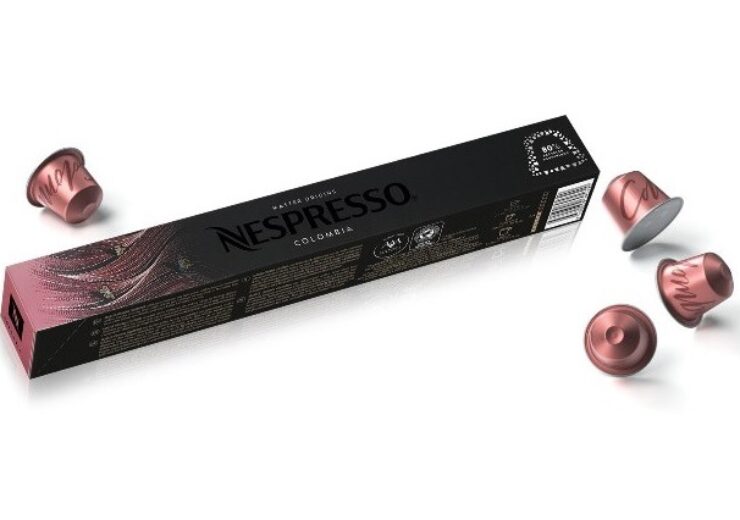Nespresso’s new coffee capsules feature 80% recycled aluminium and incorporate 9.2% less aluminium material

Nespresso’s new coffee capsules contain 80% recycled aluminium. (Credit: Novelis Aluminum)
Aluminium rolling and recycling solutions provider Novelis has provided high-recycled content aluminium for Nespresso’ coffee capsules.
Nespresso, an operating unit of the Nestlé Group, has introduced its first coffee capsule that features 80% recycled aluminium.
Nespresso has selected highly recycled and sustainable alloy for its new coffee capsules, as part of its efforts to achieve sustainability goals by reducing waste and enhance the reuse of product materials.
Novelis Europe specialities vice president Stephen Boney said: “We have a longstanding partnership with Nespresso that is focused on implementing more sustainable manufacturing processes throughout the supply chain.”
The thinner aluminium foil will enable to preserve freshness and aromas of coffee
Featuring a thinner aluminium foil, the new capsules integrate 9.2% less aluminium material and are lighter by 8%.
The thinner aluminium foil will help preserve freshness and aromas of coffee, in addition to serving as a strong barrier against oxygen, light and humidity.
According to Novelis, the foil is infinitely recyclable and needs less energy to produce than virgin aluminium.
Nespresso sustainability head Jérôme Pérez said: “We are constantly challenging ourselves to improve the sustainability and circularity of our operations, including the way we source, use, and recycle material.
“Reaching 80% recycled aluminum in our capsules is a significant milestone, and something we have worked hard to achieve with Novelis and other partners along the value chain.”
In November 2019, Nespresso collaborated with the New York City Department of Sanitation (DSNY) and Sims Municipal Recycling (SMR) for the city’s curb side programme.
Novelis has developed multiple new easily recyclable alloys in recent years, and also invested in technologically-advanced recycling facilities that helped to increase recycled product content from 33% to 60% across its global operations.
